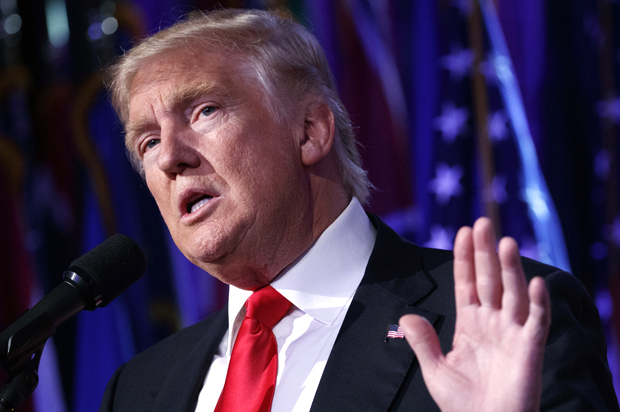President-elect Donald Trump may currently advocate revoking the citizenship of or jailing individuals who burn the American flag, but as footage of an interview with David Letterman reveals, he held the exact opposite position less than two years ago.
As The Washington Post reported on Wednesday, Trump appeared on The Late Show on Jan. 8, 2015. During his segment, Trump said that Letterman was “100 percent right” when he defended flag-burning as a form of freedom of expression. He even told Letterman that ““I understand where you’re coming from.”
Four months later, in June 2015, Trump announced his campaign for the presidency.
The considerable amount of time that elapsed between Trump’s interview with Letterman may explain why his statement defending First Amendment freedoms has slipped people’s minds. Nevertheless, it directly contradicts a now-infamous tweet that Trump sent out on Tuesday, possibly after watching a Fox News piece about the act of protest.
Nobody should be allowed to burn the American flag – if they do, there must be consequences – perhaps loss of citizenship or year in jail!
— Donald J. Trump (@realDonaldTrump) November 29, 2016
As Salon’s own Jeremy Binckes pointed out on Tuesday, Trump’s position violates legal precedent that has been settled for quite some time. As the late Justice Antonin Scalia once put it, “If I were king, I would not allow people to go about burning the American flag. However, we have a First Amendment.”
Professor Eugene Volokh from the UCLA School of Law explained why flag burning is protected by the First Amendment in an op-ed for The Washington Post on Tuesday.
“The treatment of symbolic expression as equivalent with verbal expression makes historical sense as well as logical sense, because Framing-era English and American political culture was rich with symbolic expression, used interchangeably with words,” Volokh wrote. He later added that “it makes sense that the Supreme Court’s protection of symbolic expression dates back to the very first Supreme Court decision striking down any government action on free speech or free press grounds. The Court in that 1931 case casually assumed that symbolic expression was as protected as verbal expression, and treated the display of a red flag as legally tantamount to antigovernment speech. But its assumption was consistent with the First Amendment’s original meaning: the equivalence of symbolic expression and verbal expression has been part of American law since the Framing era.”

